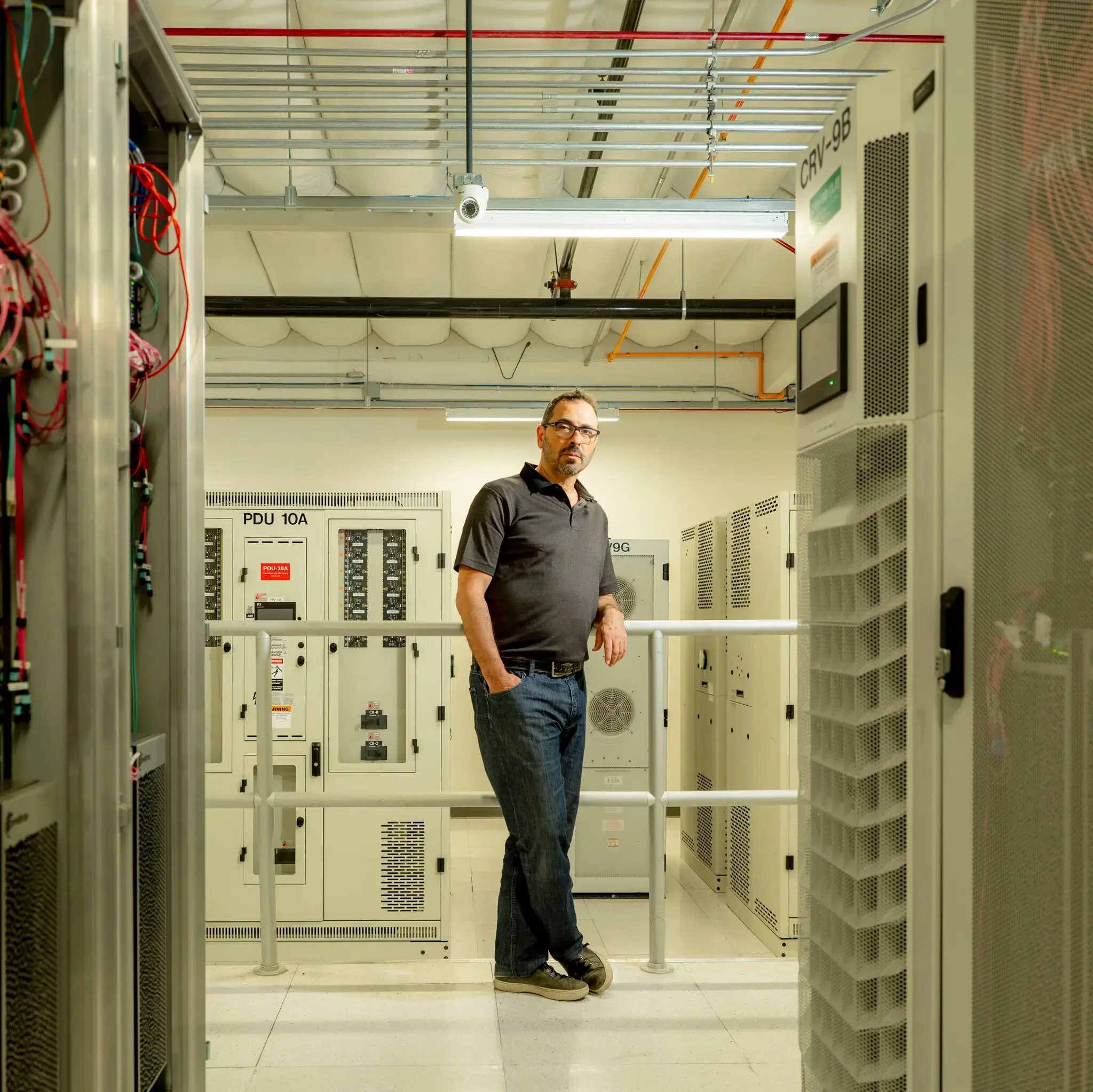In the heart of Santa Clara, California, a one-story building houses a cavernous room, where massive six-and-a-half-foot-tall machines hum and whirr behind sleek white cabinets. This impressive setup is home to a groundbreaking supercomputer, recently unveiled by Cerebras, a promising Silicon Valley start-up. This remarkable supercomputer is powered by Cerebras’ specialized chips, specifically designed to cater to the growing needs of artificial intelligence (A.I.) products. What sets these chips apart is their sheer size, resembling that of a dinner plate, an astounding 56 times larger than the commonly used A.I. chips. Remarkably, each Cerebras chip possesses the computing power equivalent to hundreds of traditional chips.
The introduction of this supercomputer marks a significant milestone for Cerebras, as they had joined hands with G42, an A.I. company, to build this marvel of technology. The Middle East-based G42 has ambitious plans to utilize this supercomputer to create and power innovative A.I. products tailored for their region.
The demand for computing power and specialized A.I. chips has witnessed an unprecedented surge, owing to the global A.I. boom. Major players in the tech industry, including Microsoft, Meta (formerly Facebook), and Google, alongside a multitude of start-ups, have eagerly launched their A.I. products, driven partly by the success of the viral sensation, the A.I.-powered ChatGPT chatbot. The increasing complexity of A.I. products necessitates substantial computing power and specialized chips, triggering a frenzied search for these technologies. As evidence of this trend, Nvidia, the leading manufacturer of A.I. chips (known as graphics processing units or GPUs), experienced a soaring demand, resulting in sales far surpassing Wall Street estimates and propelling the company’s market value above $1 trillion.
Consequently, tech giants and start-ups alike are striving to secure access to these specialized A.I. chips, with some even developing their own alternatives. Cerebras is one such start-up, alongside companies like Graphcore, Groq, and SambaNova, vying to compete in the market dominated by Nvidia.
The significance of A.I. chips is so profound that it may potentially alter the balance of power among tech companies and even nations. In light of national security concerns, the U.S. government has contemplated imposing restrictions on the sale of A.I. chips to China, fearing the implications of China’s rapid advancements in A.I. technology for its military and security capabilities.
Cerebras stands out as a pioneering start-up, based in Sunnyvale, California, with a mission to accelerate A.I. development through innovative hardware. Since its inception in 2016, the company has raised a staggering $740 million in funding, attracting investments from influential figures such as Sam Altman of OpenAI and leading venture capital firms like Benchmark. With a current valuation of $4.1 billion, Cerebras is clearly making waves in the A.I. industry.
Unlike traditional small-sized A.I. chips, which necessitate numerous chips to process complex A.I. models, Cerebras developed what they claim is the largest computer chip ever built, dramatically increasing the speed of A.I. systems’ training process, outpacing existing hardware by 100 to 1,000 times.
G42, a prominent Abu Dhabi-based company, forged a partnership with Cerebras in 2021, utilizing Cerebras’ system to train an Arabic version of ChatGPT successfully. The collaboration proved fruitful, leading G42 to commission Cerebras to construct a global network of supercomputers across different locations. This cutting-edge technology would empower G42 to develop advanced chatbots and leverage A.I. for analyzing genomic and preventive care data.
Despite Cerebras’ remarkable progress, the A.I. chips market remains predominantly dominated by Nvidia. The widespread use of software compatible with Nvidia’s A.I. chips in building A.I. models poses a significant barrier for start-ups seeking to challenge Nvidia’s dominance. However, Cerebras remains optimistic, banking on the growing demand for alternative, powerful chips like theirs, and the desire of many A.I. businesses to avoid being solely reliant on one provider.
the unveiling of Cerebras’ supercomputer signifies a groundbreaking achievement in the realm of A.I. technology. With the demand for A.I. products soaring, the pursuit of advanced computing power and specialized chips has become a highly competitive and pivotal endeavor for tech companies worldwide. As the A.I. revolution continues to reshape industries and societies, the race for innovative A.I. chips and supercomputers promises to shape the future of technology and redefine the balance of power in the tech world.





